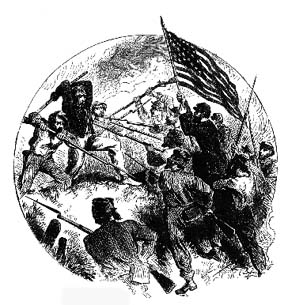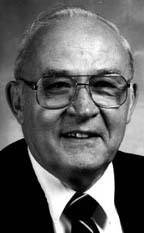



Col. Charles D. Cooper, USAF-Ret.
Editor, The Retired Officers Magazine
Poor is the nation that has no heroes, but beggared
is the nation that has and forgets them.
It was early 1863. The spirit of our nation was being torn asunder by a devastating Civil War-a war that pitted father against son, brother against brother. History tells us that as the gloomy days of winter gave way to the fresh blossoms of a new spring, the women of Columbus, Mississippi, went to the community cemetery to decorate the graves of their Confederate war dead. Noting the nearby bare and untended graves of the Northern dead who had fallen on the same field of battle, they returned with flowers to place upon the Union graves in a gesture that offered the promise of reconciliation for a deeply divided nation.
On May 5, 1866, the people of Waterloo, New York, in a more organized effort at remembrance, closed their businesses, flew the flag at half-staff, and placed flowers on the graves of fallen soldiers. Soon the practice of decorating the graves and paying tribute to the dead spread to other places, both North and South.
Moved by these growing localized traditions, Major General John A. Logan, Commander in Chief of the Grand Army of the Republic, the Union veteranís organization, acted to formalize the observance throughout the country. Just two years later, on May 5, 1868, by General Order No. 11, he called for a special day of remembrance ďwith the hope that it will be kept up from year to year, while a survivor of the war remains to honor the memory of his departed comrades.Ē
 The
paper upon which Loganís order was published has tattered, its ink faded
with time. Yet the poignancy of his thoughts, captured in the extracts
that follow, may serve to remind us of the true significance of this special
day. Logan wrote:
The
paper upon which Loganís order was published has tattered, its ink faded
with time. Yet the poignancy of his thoughts, captured in the extracts
that follow, may serve to remind us of the true significance of this special
day. Logan wrote:
The 30th day of May 1868 is designated for the purpose of strewing with flowers or otherwise decorating the graves of comrades who died in defense of their country during the late rebellion, and whose bodies now lie in almost every city, village, and hamlet churchyard in the land.
Col. Charles D. Cooper, USAF-Ret.
Their soldier lives were the reveille of freedom to a race in chains and their deaths a tattoo reminding us to take arms in rebellion when tyranny threatens. We should guard their graves with sacred vigilance. All that the consecrated wealth and taste of the nation can add to their adornment and security is but fitting tribute to the memory of her slain defenders.
Let no wanton foot tread rudely on such hollowed grounds. Let pleasant paths invite the coming and going of reverent visitors and fond mourners. Let no vandalism of avarice or neglect, no ravages of time, testify to the present or the coming generation that we have forgotten, as a people, the cost of a free and undivided Republic.
Let us, then, at the time appointed, gather around their sacred remains and garland the passionless mounds above them with the choicest flowers of springtime. Let us raise above them the dear old flag that saved them from dishonor; let us in this solemn presence renew our pledges to aid and assist those whom they have left among us as sacred charges upon the Nationís gratitude-the soldierís and sailorís widow and orphan.
Five years later, in 1873, the New York Legislature acted to make Decoration Day a legal holiday throughout the state, and in the years immediately following, most other states passed legislation formalizing this commemorative day. In 1882, the holiday was made more inclusive and renamed Memorial Day, and today it recognizes more than 1,163,400 dead from all of Americaís wars.
For nearly a century, Memorial Day was celebrated on May 30. However, in 1971 the last Monday in May was established by law as the official date for this commemoration. So it is that this year, May 26, 1997, has been set aside as a special day for all Americans to pause from their daily activities to remember those who have served in their nationís wars.
It is important to remember the significance of this unique
day. The precious freedoms all generations enjoy today have been bought
with blood and the lives of our fallen comrades. That gift must not be
forgotten in the frenzy of daily activities or holiday sales. We must ensure
that our countryís heritage is passed on to those who follow in our footsteps,
for the very soul of our great country will truly be beggared if we fail
to remember the lessons of the past.
Brethren Benefit From Pooled Income Fund
What is one of the better ways you can benefit yourself and your family and, at the same time, support the Scottish Rite and its Childhood Language Disorders Program? The answer is simple: The Scottish Rite Pooled Income Fund!
The Scottish Rite Pooled Income Fund allows you and, if you wish, your wife and/or other beneficiary(ies) to receive a worry-free lifetime income as well as attractive tax benefits by joining the Fund via a financial gift to The Scottish Rite Foundation, S.J., USA. For more information call, 1-800-486-3331 or fax 202-387-1843.
Grand Commander Kleinknecht will personally respond to
your inquiry. If he is not available, please leave your name and number,
and the Grand Commander will return your call at his earliest opportunity.
Through the Scottish Rite Pooled Income Fund, you can do well for yourself
and your family while also doing good for others!